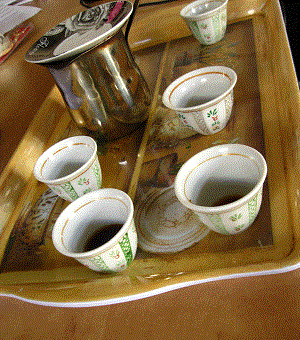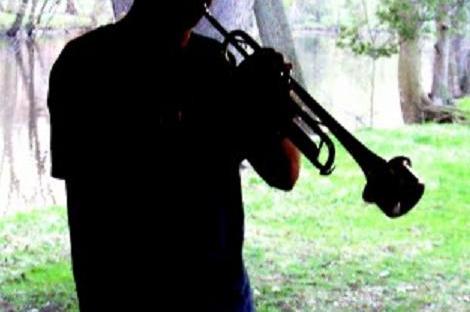 I want to unpack this notion of “writing to live”, presently. It cannot be a hollow, “just do it”, reductionist-species of motivational phrase. This fresh axiom also needs separated from another, superficially-similar suggestion to “write like your life depends upon it.” These two sentences come from different poetics. To write as if my entire life depends upon it might seem like a way to connect a mode of expression with a primal impetus. For me, such urgency adds centrifugal force to dangerous spirals. Once my brain absorbs a “write-or-die” mandate, the carousels of my consciousness will spin until I feel frustrated and intimidated, even hopeless. The human experience is like this but I come to it at a steeper angle: much urgency is punishing and punishment can be crippling. To stay at the point of engagement, we must cultivate another Way.
I want to unpack this notion of “writing to live”, presently. It cannot be a hollow, “just do it”, reductionist-species of motivational phrase. This fresh axiom also needs separated from another, superficially-similar suggestion to “write like your life depends upon it.” These two sentences come from different poetics. To write as if my entire life depends upon it might seem like a way to connect a mode of expression with a primal impetus. For me, such urgency adds centrifugal force to dangerous spirals. Once my brain absorbs a “write-or-die” mandate, the carousels of my consciousness will spin until I feel frustrated and intimidated, even hopeless. The human experience is like this but I come to it at a steeper angle: much urgency is punishing and punishment can be crippling. To stay at the point of engagement, we must cultivate another Way.
I tried to play trumpet like my life depended upon it, preparing for school-of-music auditions during my teenage years. I stamped my feet at every error I made at-home and tunneled into exercise books. Daunted, I considered the levels of proficiency remaining to be achieved and felt pressure to compensate for progress I had not made — whether by my own omission or the circumstances of being from a class-D, rural school district. College auditions disjointed me, aggravating my rejection sensitivity, and turned my visions for my self and music into melting gelatin. I was not accepted into the school of music at MSU on my first attempt. I made no second attempt.
I continued playing in the alcoves under bridges and in ‘poached’ practice-rooms: good omens. Was “play to live” inevitable?

At twenty-four years of age I was struggling; I decided there was nothing to be lost by playing trumpet next to the Michigan’s beautiful Grand River. For several years I insisted the trumpet saved my life but that’s not accurate: I chose to “play to live”. Agency was mine yet I conceived it as a paradox: I forfeited my aspirations but continued to improve, absurdly, for “therapeutic reasons”. I dedicated myself to the daily practice of making music for my own ears, forsaking sheet music to learn every scale by memory and tease-out familiar melodies by heart. The urgent need to be excellent ebbed and a different sensibility blossomed with the keenness of my hearing which foiled my intuition’s spinning carousels. For years I sculpted this narrative as if something nonsensical had happened but my musical process was alterna-tuitive (to coin a term). I could not replicate this artistic shift in my writing because I misunderstood what happened on a fundamental level: I had untied the bonds of aspiration a priori in goal-oriented culture. Accomplishment separated from Achievement and attached to a more intimate kind of mastery. Efficiency ceded to being at-play with increasing fluency on the instrument. I practiced as if practice itself was what made life worth living!
As long as it is possible to “write to live”, then trumpeting to live can be my precious, refining analogy. What can one part of my soul learn from the other?
 First, the disinhibiting practice of subtracting weight from doubtful thoughts in real-time is vital. The stomping foot was replaced by amused laughter, next to the Grand River, because my ability to recognize awkward passages is a marker of honed tastes: laugh at fuck-ups, then amend. Reject efficiency and embrace permutations to gain creative fecundity; this has been especially true as I drift away from playing known melodies to improvising: Art gives us spaces in which we control time, allowing us to loop around points of praxis, exploring possibilities. I learned to strike balances between exercises that fortify skill, new music to chew on, and following my improvisational instincts using keys & tonalities as guide-posts. Transposing these principles to writing, that could mean A) study to keep my grasp of language sharp, B ) read hungrily, and C) follow my instincts using points-of-view & genre as guide-posts?
First, the disinhibiting practice of subtracting weight from doubtful thoughts in real-time is vital. The stomping foot was replaced by amused laughter, next to the Grand River, because my ability to recognize awkward passages is a marker of honed tastes: laugh at fuck-ups, then amend. Reject efficiency and embrace permutations to gain creative fecundity; this has been especially true as I drift away from playing known melodies to improvising: Art gives us spaces in which we control time, allowing us to loop around points of praxis, exploring possibilities. I learned to strike balances between exercises that fortify skill, new music to chew on, and following my improvisational instincts using keys & tonalities as guide-posts. Transposing these principles to writing, that could mean A) study to keep my grasp of language sharp, B ) read hungrily, and C) follow my instincts using points-of-view & genre as guide-posts?
“Progress is not what my intuition ever expected or indicated it would be or feel or or” (I wrote that fragment in my outline and it still captures my sentiments). I also wrote in my outline “my artistic temperament and my practical choices”; what ‘direction’ I planned to take this phrase is unknown to me, now, but there are possibilities in it — have some ideas? To be at-play with ideas is quintessentially ‘me’, more so than the un-musical intuition I want to discard. “Learning to work with my brain as it is, as it has become,” says my outline, (trailing-off) — that is my new Grand River. What is ‘ left undone’ is pitted against ‘what I can still do from my current position’, a difficult position. I am reminded of musical talent I am gaining, recently, which is the ability to amend a blue note by playing additional notes to contextualize it rather than stopping to apologize, lament, and regret. Dissonances can be put-to-work. Today’s bitter tastes are next-year’s antecedent flavors, ingredients in the evolving recipe of my life.
 You may want me to grasp and pull, again, at the thread of my mental health (since March). It has improved and the authentic proof is that I want to reach into the true, backside or darkside-of-the-moon part of my brain and accept it all with Love. For so long I FEARED I did not apprehend the world “properly” and would be incompatible with society, estranged from others as I was in early childhood. Lately, I’ve moved toward accepting that I apprehend the world differently — as artists tend to do — but that I can adapt to engage with my world and community as my true self. I will be loved. Much of my blogging was an attempt at philosophy, to relate and generalize my cognitions so audiences could accept them as “enough”. Audiences might struggle to connect to much of my reasoning… but those sentiments rendered as figurative writing, through poetry and story, could birth a multitude of vibrant readings if my practice continues, continues, continues until performance is not forced by urgency but inevitable by virtue of fluency.
You may want me to grasp and pull, again, at the thread of my mental health (since March). It has improved and the authentic proof is that I want to reach into the true, backside or darkside-of-the-moon part of my brain and accept it all with Love. For so long I FEARED I did not apprehend the world “properly” and would be incompatible with society, estranged from others as I was in early childhood. Lately, I’ve moved toward accepting that I apprehend the world differently — as artists tend to do — but that I can adapt to engage with my world and community as my true self. I will be loved. Much of my blogging was an attempt at philosophy, to relate and generalize my cognitions so audiences could accept them as “enough”. Audiences might struggle to connect to much of my reasoning… but those sentiments rendered as figurative writing, through poetry and story, could birth a multitude of vibrant readings if my practice continues, continues, continues until performance is not forced by urgency but inevitable by virtue of fluency.
And whenever “everything feels too late” I can remember my friend in New York musing energetically on the telephone about (maybe) working with prostheses, learning a new trade he could use to help people. Both of us are past thirty years old but still full of potential– and still connected to each other. I will never cease to use my voice until I am dead — and I believe I will never be dead of my own accord — once I can “write to live”.
And of course, now that I have watched Disney’s “Frozen” four times in a row. Stay tuned: I’m working on another piece.



1 thought on “Write to Live: Musician’s Intuition”